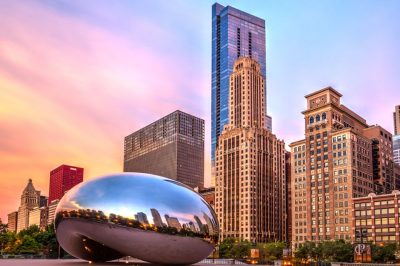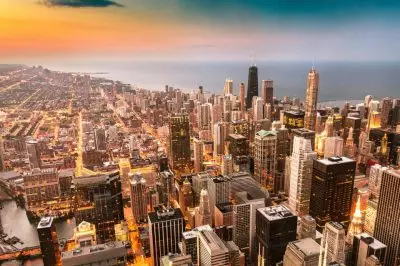 According to a new study on the feasibility of a Chicago-located casino, heavier tax and fee structure would make it harder for the venue to attract investors. The results of the research which has been carried out by Union Gaming Analytics have pretty much mirrored the concerns regarding the ability of a casino to make a profit that Chicago Mayor Lori Lightfoot has previously shared.
According to a new study on the feasibility of a Chicago-located casino, heavier tax and fee structure would make it harder for the venue to attract investors. The results of the research which has been carried out by Union Gaming Analytics have pretty much mirrored the concerns regarding the ability of a casino to make a profit that Chicago Mayor Lori Lightfoot has previously shared.
Chicago’s casino gambling market was officially legalized by the General Assembly in 2019. Under the conditions of the gambling legislation, an operator of Chicago-based casino would be forced to pay an application fee of $250,000, a further $15-million fee at the time when local authorities issue the operating license and gambling position fees of up to $120 million. An additional 33.3% “privilege tax” would have to be paid, too.
As required under the casino gambling bill which the signature of Governor J.B. Pritzker turned into law, five prominent locations in Chicago were submitted for the so-called economic feasibility study.
Unfortunately, the results of the research showed that the proposed Chicago casino would not be attractive to investors because of heavy taxes associated with the project. It turns out that state lawmakers may be forced to start negotiations on the project all over again.
Illinois Governor Has Been Counting on the Chicago Casino Project for Additional Funding
 It is overall costs and high taxes which are expected to lead to low single-digit profit margins in the best case if any of the five sites in Chicago is chosen to host a casino. According to the estimates included in the report, a Chicago-based casino could account for yearly returns which exceed 20% in case the 33.3% tax on post-payout revenue is eliminated.
It is overall costs and high taxes which are expected to lead to low single-digit profit margins in the best case if any of the five sites in Chicago is chosen to host a casino. According to the estimates included in the report, a Chicago-based casino could account for yearly returns which exceed 20% in case the 33.3% tax on post-payout revenue is eliminated.
The five locations that were found most prominent for hosting a casino venue were submitted by Chicago mayor in July. They include the former Michael Reese hospital, the former US Steel parcel, Harborside, Roosevelt and Kostner, and Pershing and State.
The findings of the researchers would be challenging both for Governor Pritzker who has been depending on the projected casino revenue to provide the funding for his $45-billion infrastructure program called “Rebuild Illinois”, and for Chicago Mayor Lightfoot, who has taken the job only recently and is already facing significant fiscal hurdles.
Of course, the Illinois Gaming Board could address state legislators and ask them to reconsider the terms regarding the Chicago casino project. However, such a request must be made within 90 days, as revealed by the regulatory body itself.
The beginning of the week saw Chicago mayor share financial experts’ estimates according to which, the upfront tax payments which would be imposed on casino operators would not allow them to be successful. Ms. Lightfoot said in a statement that she was aware of the fact that a new Chicago-based casino venue had to be “financially viable”. She further noted that the survey results confirmed the concerns regarding the tax structure passed by the state legislature, but also reminded that the issue could be addressed.